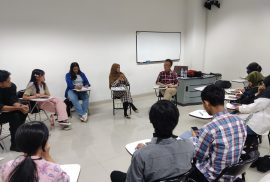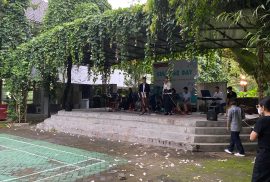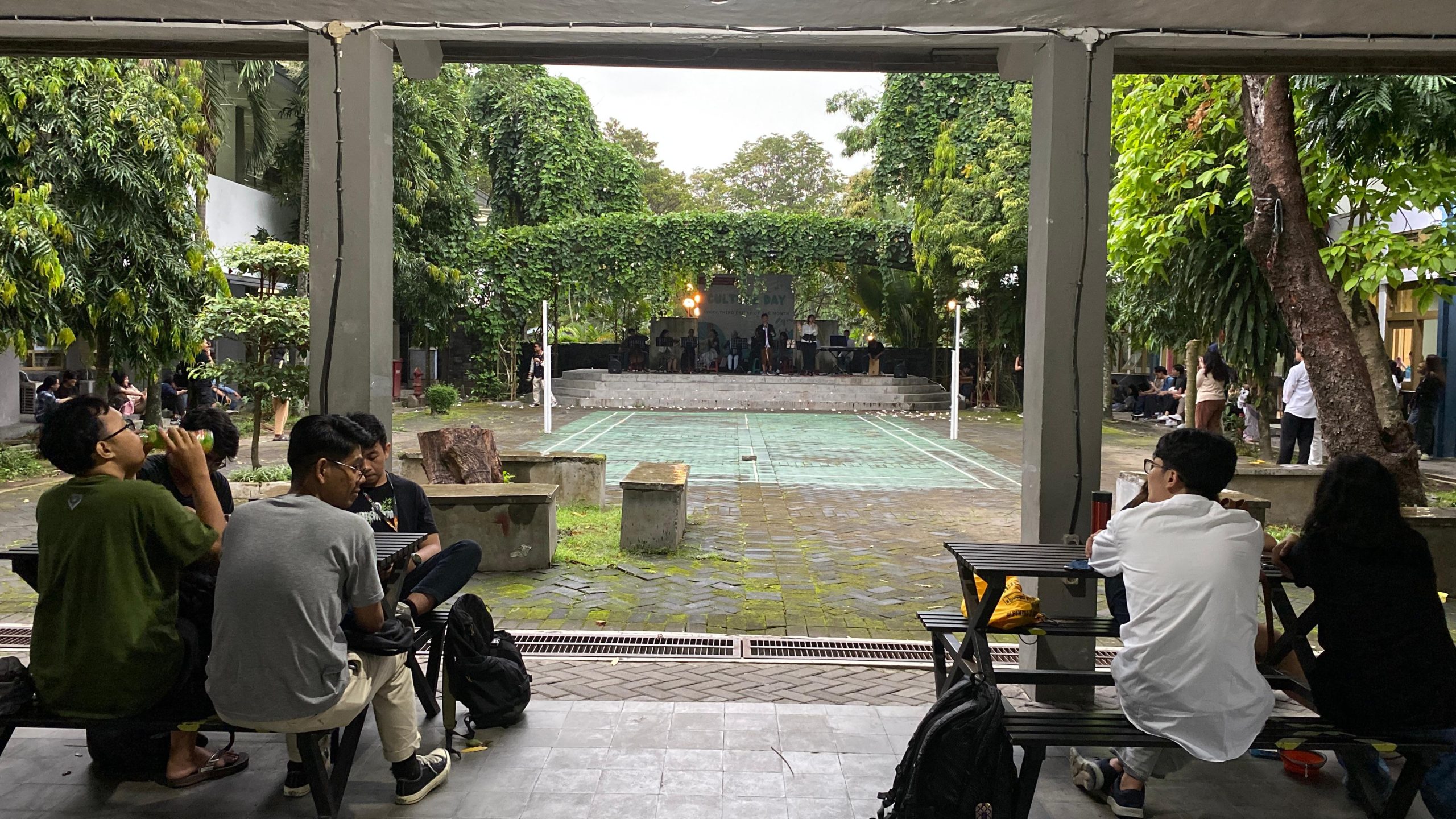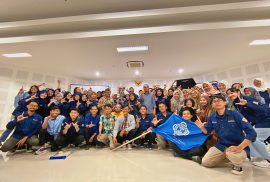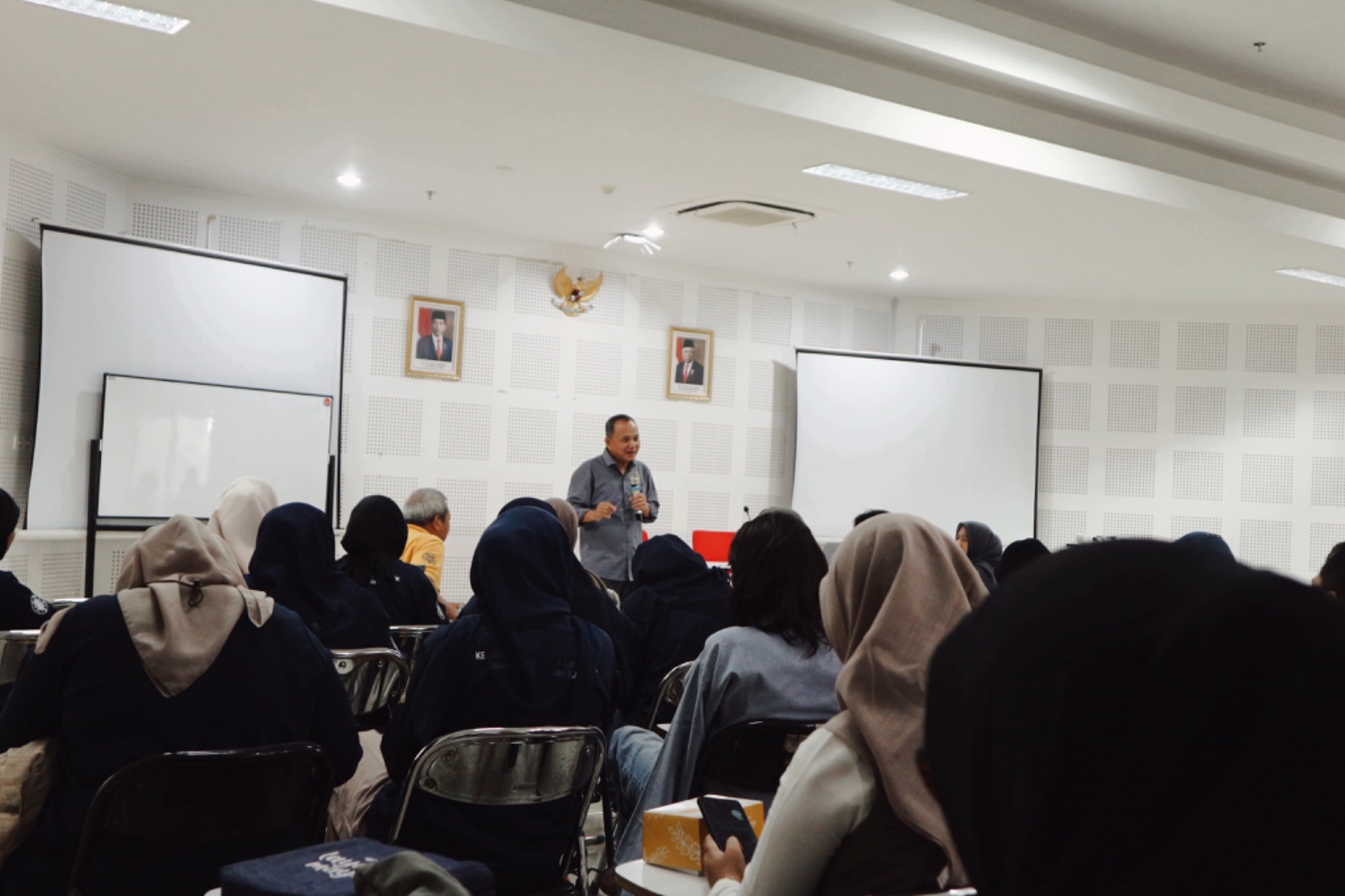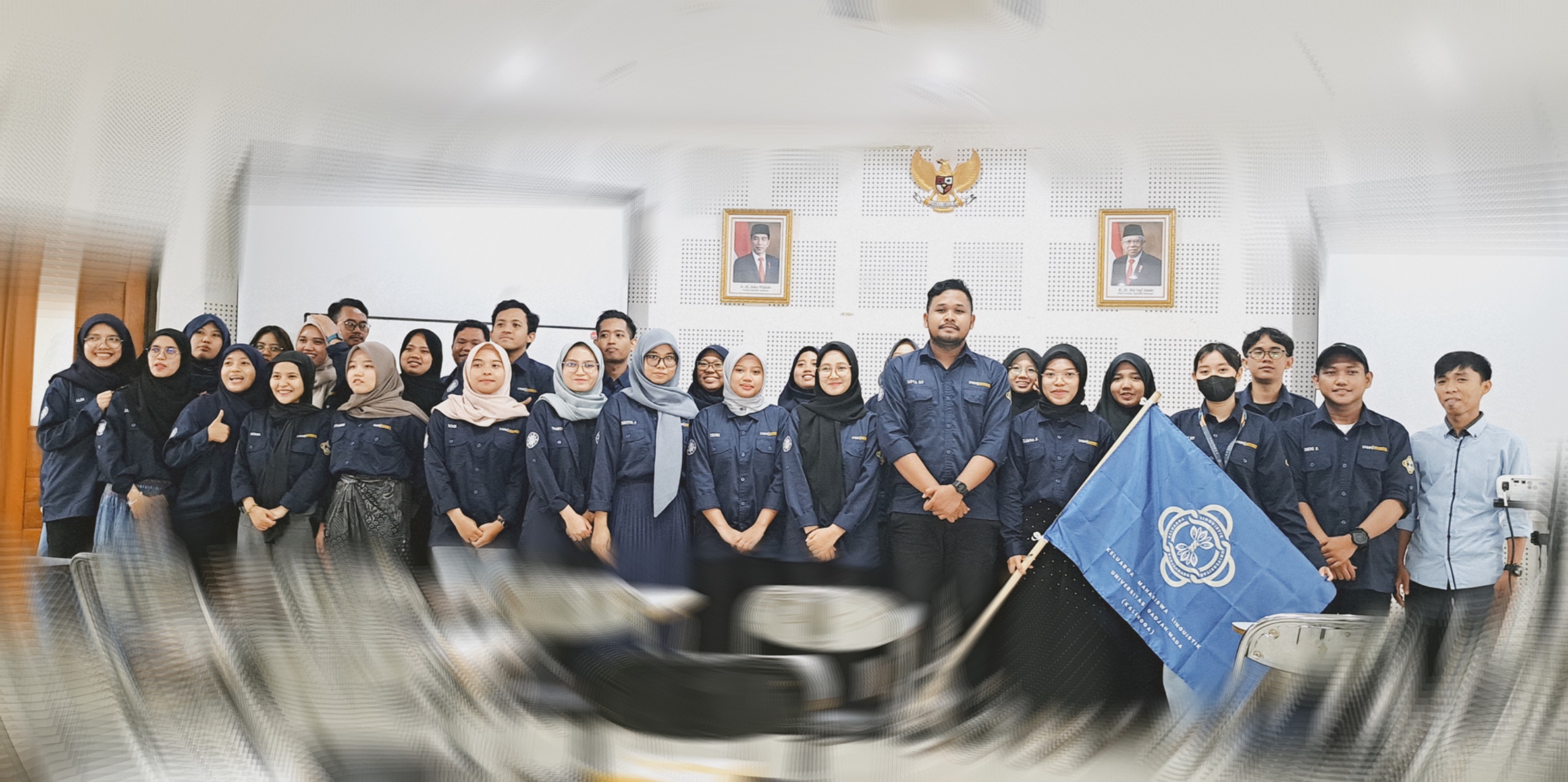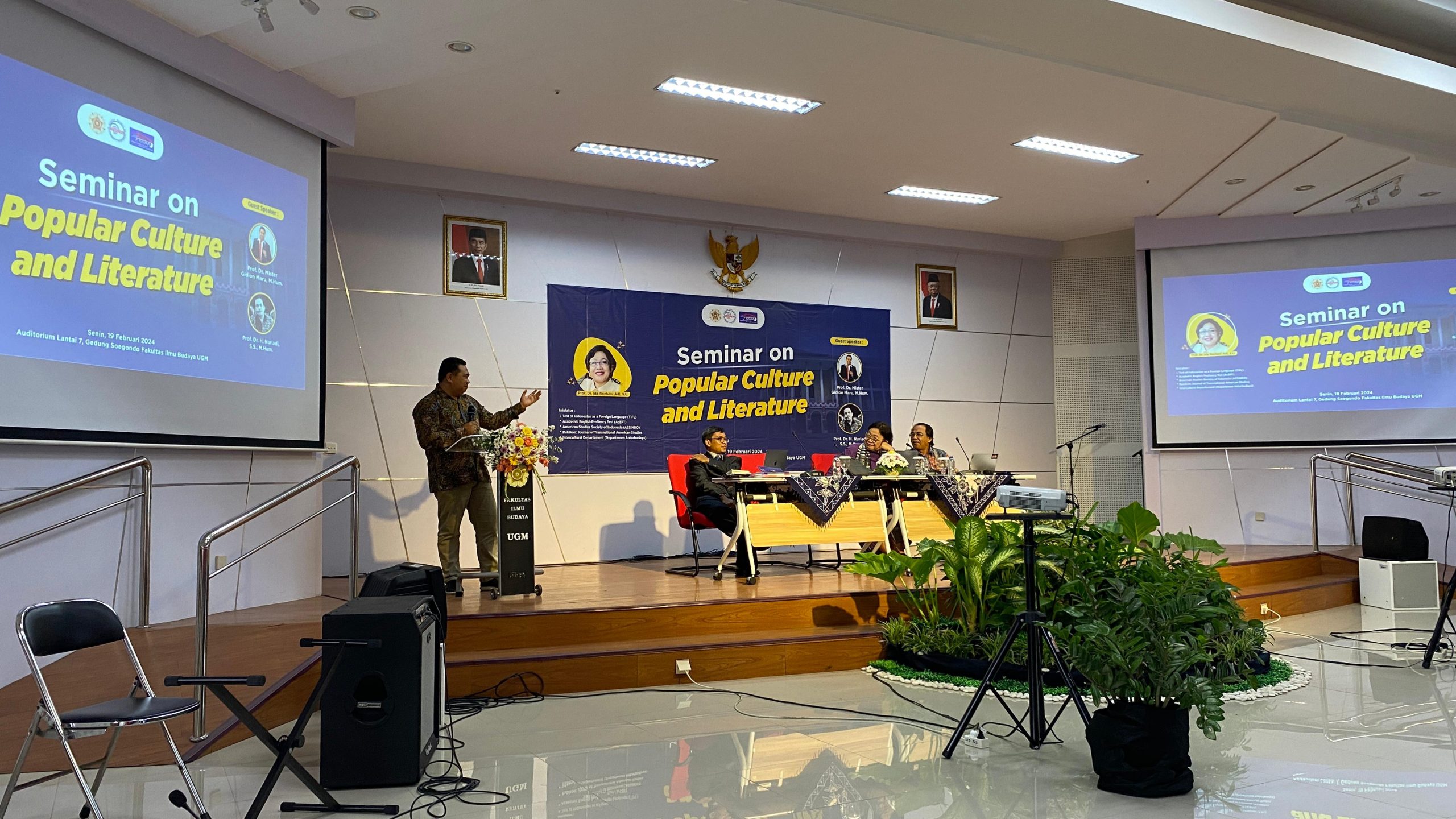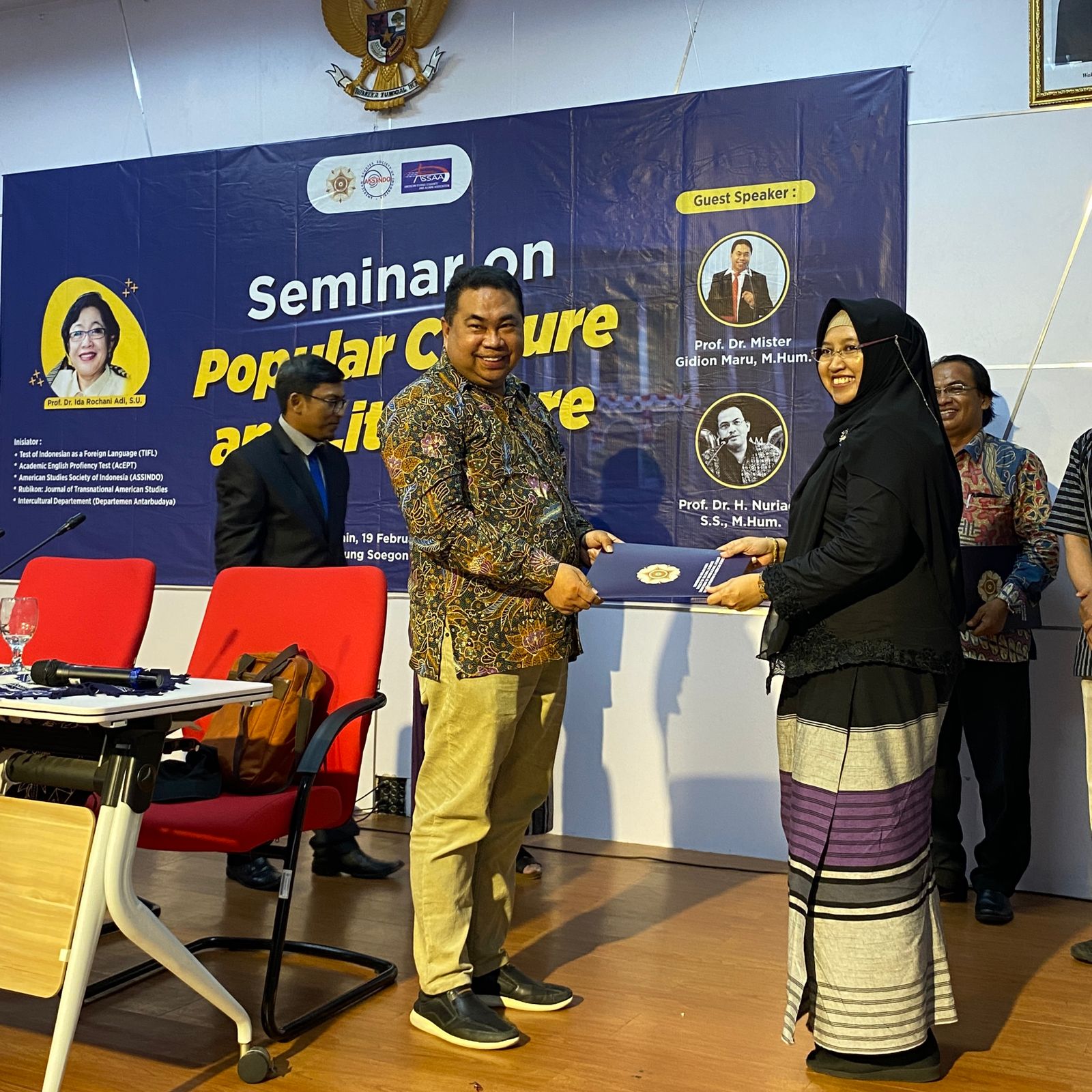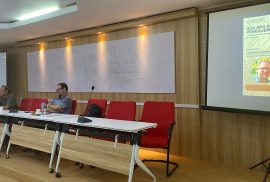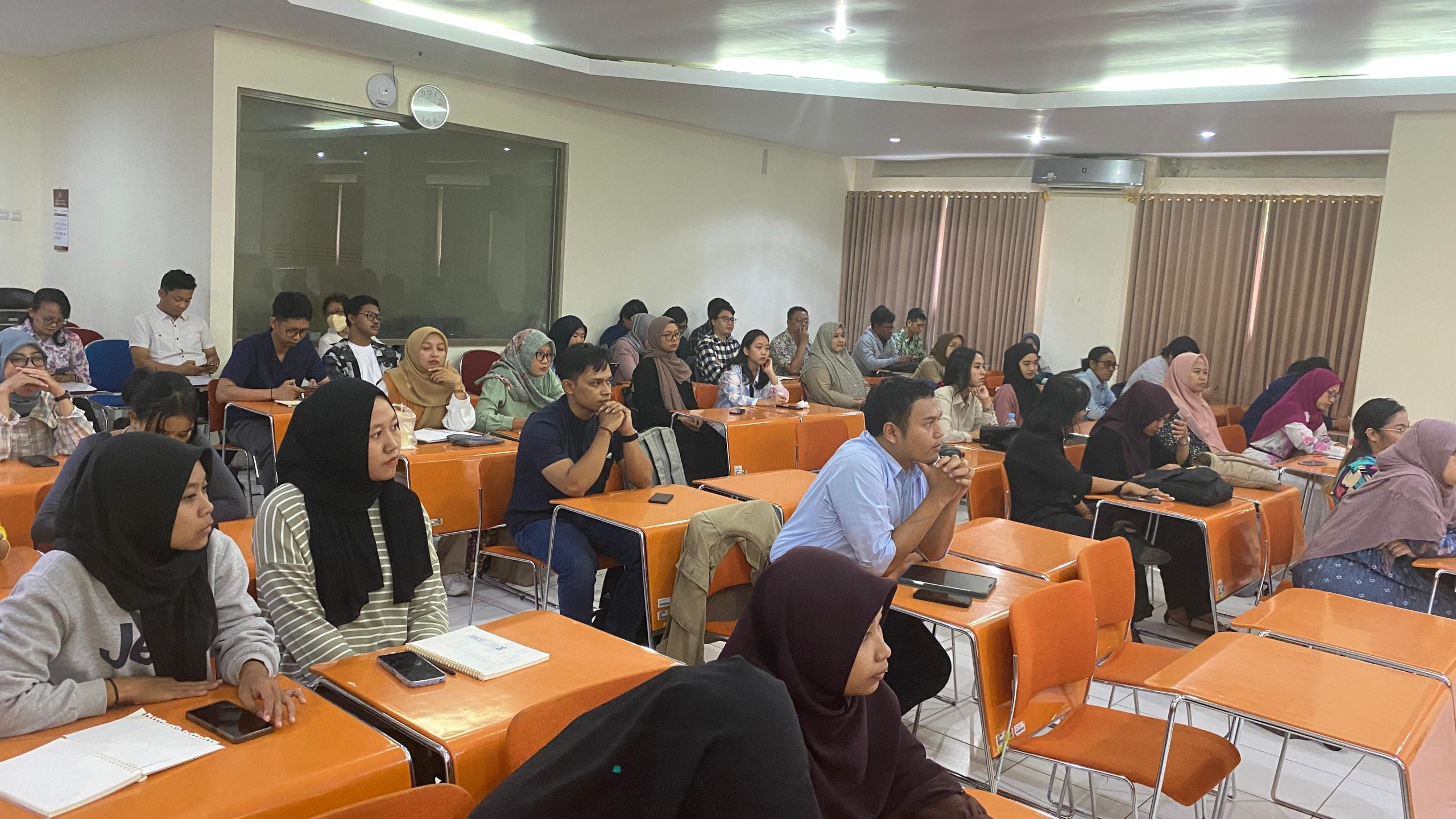SGDs 4: Quality Education | SDGs 11: Sustainable Cities and Communities | SGDs 17: Partnerships For The Goals
On Monday, February 26, 2024, 16.00-17.30 WIB, the UGM Japanese Language and Culture Study Program (BKJ) held an offline light discussion on the topic ‘Current State of Japan’ with Aoyama Tooru, Ph. D. who is an Emeritus Professor from Tokyo University of Foreign Studies. The discussion was attended by lecturers and students of BKJ UGM from all active batches.
The discussion agenda was opened with an explanation of the current condition of Japan by Aoyama-sensei. Coinciding with the new year 2024, January 1, 2024, in Japan, precisely Noto in Ishikawa Prefecture faced an earthquake measuring 7.6 on the Richter Scale at 14.10 local time. The earthquake not only damaged many public facilities and homes but also affected the access roads to the affected areas. The severe damage hampered access to disaster relief by the Japanese government. The affected area is a rural area filled with elderly people, so most victims have difficulty moving quickly in a precarious situation. Alas, the earthquake and its damage have the potential to make the area disappear from the map of Japan. This is because young people in Japan are choosing to live in cities with better facilities. Based on Aoyama-sensei’s explanation, the session continued with a dynamic and interactive question-and-answer session. Afterward, the discussion session was characterized by various questions about current social issues or problems in Japanese society. One of them was the link between the shoushikoureika (少子高齢化) problem, known as the problem of low birth rate and high elderly population, and the future of Japan.
The discussion with Aoyama-Sensei gave Japanese Language and Culture students valuable experience that can improve their critical thinking skills. By studying social cases in Japan, students not only broaden their horizons but also hone their creativity in formulating solutions to existing or even similar problems in Indonesia. This activity is a window of inspiration for students to learn and enrich their perspective on the current condition of Japan.

